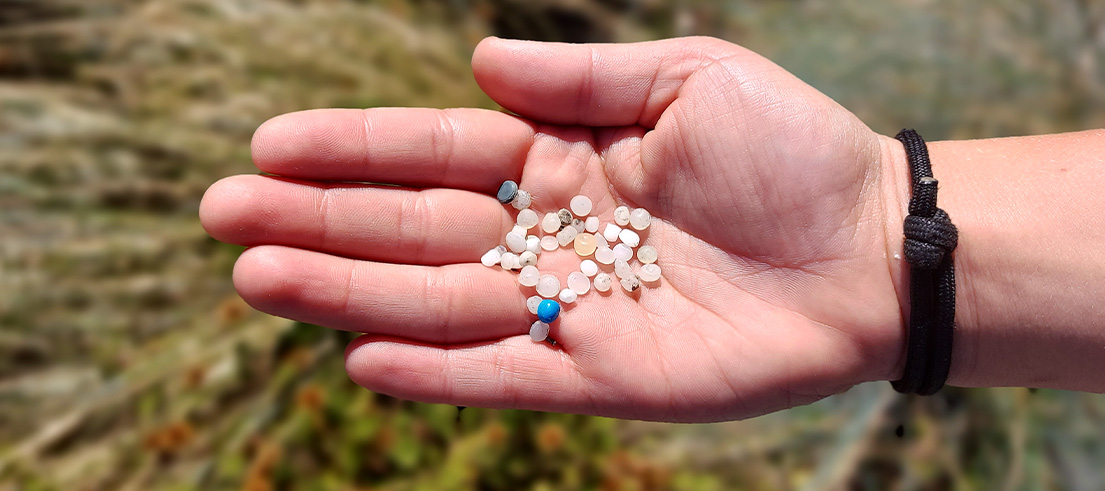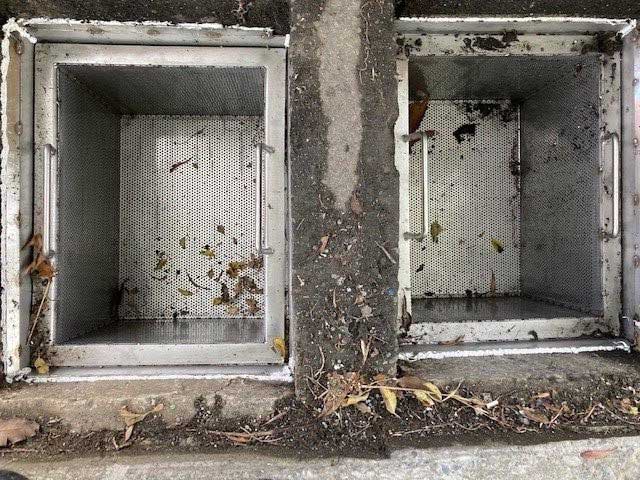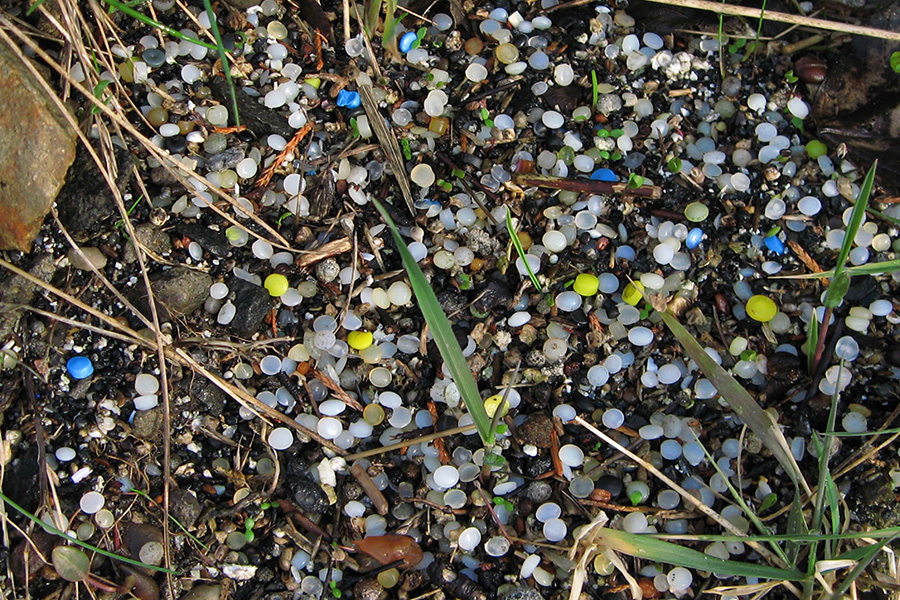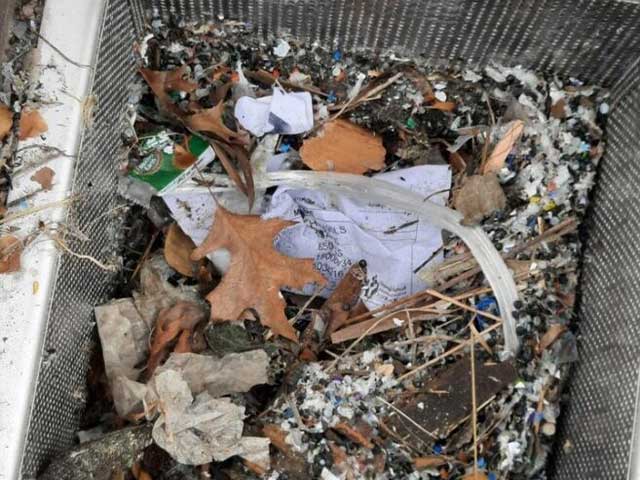
Blitzing nurdles and other microplastic foes
An unprecedented blitz on ‘nurdles’ in Christchurch has seen at least 13 plastics businesses improve their stormwater protection measures.
Nurdles are small beads of waste plastic. They travel down drains and end up in our waterways - such as the Avon River, Heathcote River and the Avon Heathcote/Ihutai Estuary.
Our staff began investigating these insidious pollutants after the issue was brought to light by student Emma Hunter’s research.
Action taken by businesses since then will significantly reduce the amount of nurdles and other microplastic waste entering our rivers and streams via the stormwater network.
'Blitz days' offer advice
Our approach has been to engage with as many businesses as possible, starting with a friendly letter to increase awareness of nurdles – and offer advice on how to protect our stormwater networks from them, such as installing sump protection.
The letters are then followed up with an unannounced site visit to check the presence of stormwater protection measures.
Staff undertook two ‘blitz’ days in April and September 2023, visiting as many plastics manufacturers and processors as possible – hitting as many as 40 in a day!
Senior resource management officer, Matthew Wilson, said that what they found was a bit of a mixed bag.
"There were quite a few sites that had some stormwater protection measures in place but could do more. Then there were a bunch that were bad and needed lots of work – we’ve started making follow-up visits to those sites."
The team has identified 106 sites in total so far, and they’ve visited about 79 of those.
Other types of microplastics
"Through our site visits, we discovered other forms of microplastics of concern, as well as nurdles. We’ve categorised them into four different types," said Matt.
They are:
- Nurdles – the biggest kind, beaded microplastic
- Pre-expanded polystyrene beads, which look like sugar
- Sheet plastic powder/shavings/flakes
- Powdered plastic – from manufacturing things like PVC pipes and water tanks.
Unfortunately, these tiny forms of microplastic waste, especially powdered plastic, are virtually impossible to detect or remove from waterways. Prevention is key.
Businesses get onboard
Resource management officer, Steph Scheirlinck, said it’s been encouraging to see how keen businesses are to make improvements.
"On the whole, the businesses we’ve visited have been willing to work with us, not against us. Once they realise the impact of microplastic waste and get some advice on how they can prevent it, a lot of them have invested in improvements on some level, which is awesome to see."
So far, 13 plastics manufacturing and processing businesses have improved their stormwater protection measures.
However, it’s believed more sites have started improving their housekeeping practices and are yet to confirm this with us.
Engagement with other groups
In addition, we have been engaging with other groups as part of our work to raise awareness about stormwater protection.
Matt has presented to the Community Waterways Partnership with student Emma Hunter, and he also gave a presentation to the Christchurch City Council staff managing the city’s stormwater discharge consent.
Steph presented at the Environmental Compliance Conference in Wellington, while land management advisor, Carys Marulli de Barletta, recently presented to and heard from Rolleston College’s year nine students who undertook a project on plastic waste.
The team has also been sharing their progress with Plastics New Zealand’s Operation Cleansweep, who have been very interested as we’re the only council in New Zealand that has undertaken a microplastics audit like this. Matt has even been contacted by Southland District Council and Auckland Council as they’re keen to learn from our experience and possibly implement something similar.
Maintaining awareness around stormwater
Our summer students are currently hunting down more plastics businesses that we haven’t approached yet. These kinds of businesses can be hard to find, as they’re mostly industrial and don’t have a lot of public-facing information about what they do.
The team will continue to conduct follow-up site visits with the businesses identified as needing to make improvements. A third blitz day is also being planned.
As Carys points out, the work is ultimately about raising awareness of how our stormwater network works.
"It’s unfortunate to think how many people and businesses don’t realise that what goes down the drain usually goes straight into our waterways. Getting people to understand this is a good first step, and once they do, they're generally really receptive - which is great to see."
If you work for a business that might want to learn more about stormwater protection, or if you’d like to chat with our team, please get in touch by calling 0800 324 636.



